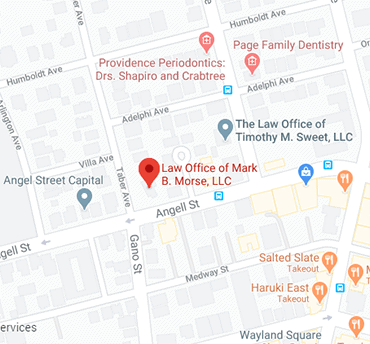Is There A Waiting Period Between The Time You Become Disabled And When You Are Eligible To Receive Long-Term Disability Benefits?
There is a waiting period in most cases. Many policies have a waiting period of 180 days before the long-term disability benefits become effective. There is usually a short-term disability policy that will cover the period of time before the long-term disability benefits become available.
Can A Long-Term Disability Policy’s Precise Definition Of Disability Make A Big Difference In A Case?
Most policies have very similar definitions as to how they define disability. Nevertheless, minor variations can make the difference between whether you are able to obtain benefits or not. We look for subtle distinctions between the different policies and try to use those distinctions to our advantage when we can.
What Information Should I Share With My Doctor If I Plan To File A Disability Claim?
The most important aspect of filing a disability claim is to establish a medical condition that renders you unable to perform work. In most policies, there is an initial period of time where you have to establish that you’re unable to perform the substantial duties of your own occupation, and then, after a period of time (usually 24 months), you need to establish that you are unable to perform substantial duties of any type of occupation.
With that in mind, what you’ll want to do with your physician is have them describe for you why it is that you are unable to perform the duties of your own occupation or, at a later time, perform the material duties of any sort of occupation. In other words, what sort of limitations do you have? what can you lift? what can you physically do? what is it about your condition that prevents you from performing the substantial duties of your occupation?
How Much Do My Medical Records And My Doctor’s Opinion Impact The Decision On My Long-Term Disability Claim?
Your physician’s opinion should be given significant weight, and under the law, it is not to be disregarded; it has to be given some consideration. However, it is not the only criteria upon which the disability provider is going to rely. They will also consider their own medical expert’s reviews, vocational reviews, and things like surveillance. They will hire private eyes to monitor you, keep an eye on your public activities, and see if your public bearing comports with what you claim to be your disability. In other words, if you’re claiming that you have a disability that prevents you from reaching or lifting or carrying heavy weight and they see you in a grocery market with what is apparently a heavy package, they will consider that. In fact, they often take hours and hours of filming footage just so they can find this one instance where you may have conducted yourself in a manner inconsistent with what you claim to be your disability. You have to be very careful about that sort of thing as the disability provider will look for any reason to deny you disability benefits.
So, although your doctor’s opinion will have, and should have, great significance, it will not be the only factor. It may not even be a decisive factor, depending on the extent to which your doctor’s opinion is backed up by objective medical testing such as MRIs, X-ray imaging, and the like. The results of those tests can also be very impactful on your case.
Who Actually Decides Whether I Am Approved Or Denied For Benefits?
Initially, there will be a claims examiner who will be concentrating on your file. Depending upon the amount in issue, they might have a claims review committee look over the examiner’s shoulder to gauge if their initial determinations are correct. The initial disability claims examiner should make their decisions based upon the medical records that are submitted; they’ll also rely on their own medical reviews, their own vocational analysts, and the surveillance footage, to the extent they have any. They should be considering all of these different factors to determine whether, in fact, you are disabled according to the terms of the policy.
If it goes beyond the initial review and there is an internal appeal, which generally goes through the disability provider’s appeal mechanism, then they’re supposed to have another claims examiner take a look at the case, perhaps under the supervision of a claims review committee. In most cases, though, you are really dealing with a single claims examiner who is supposed to examine the evidence that’s presented before them and make a reasoned decision based upon that evidence.
For more information on Long-Term Disability Benefits, an initial consultation is your next best step. Get the information and legal answers you are seeking by calling (401) 831-0555 today.

Call Now To See How We Can Help!
(401) 831-0555

